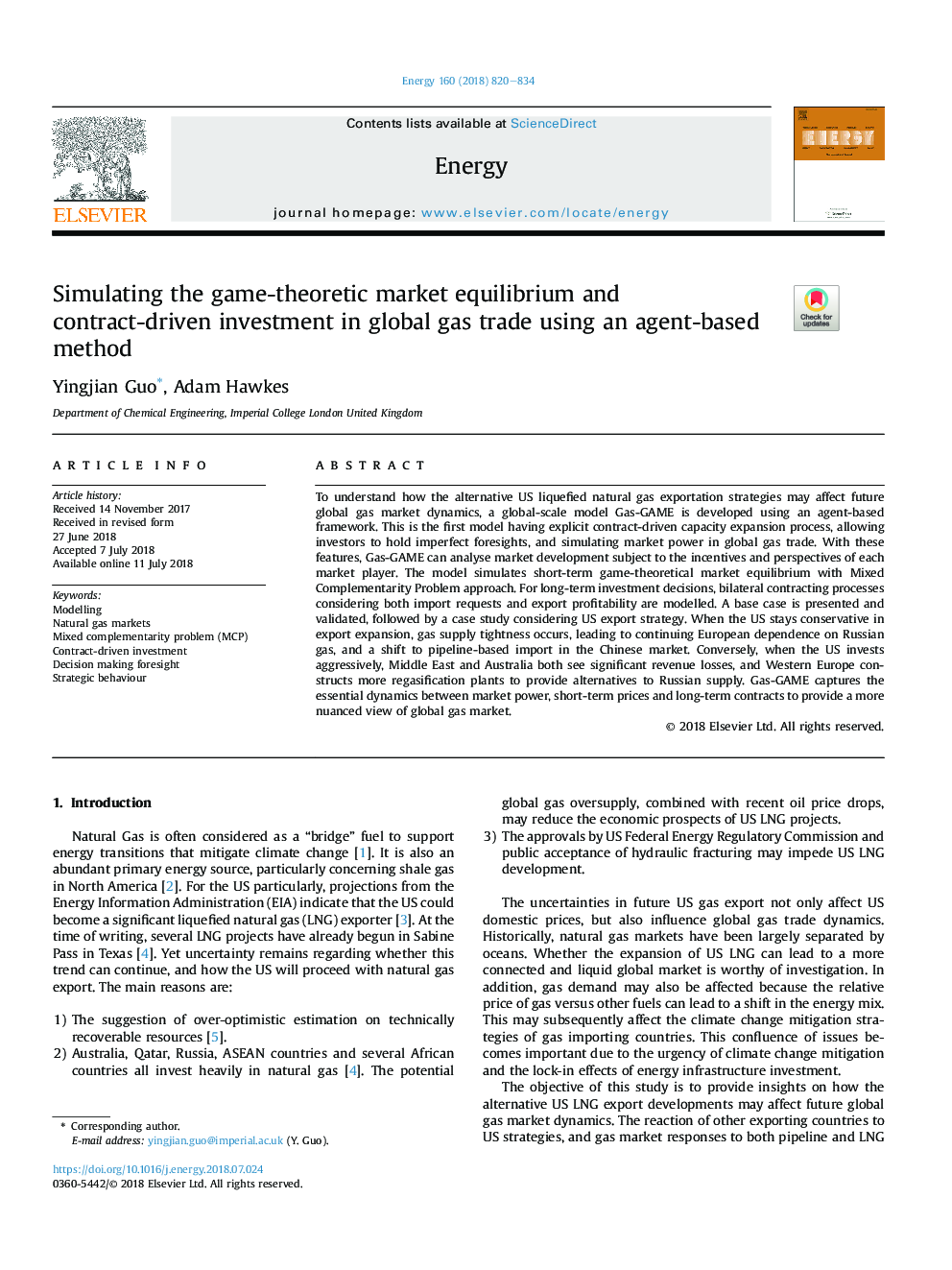| Article ID | Journal | Published Year | Pages | File Type |
|---|---|---|---|---|
| 8070990 | Energy | 2018 | 15 Pages |
Abstract
To understand how the alternative US liquefied natural gas exportation strategies may affect future global gas market dynamics, a global-scale model Gas-GAME is developed using an agent-based framework. This is the first model having explicit contract-driven capacity expansion process, allowing investors to hold imperfect foresights, and simulating market power in global gas trade. With these features, Gas-GAME can analyse market development subject to the incentives and perspectives of each market player. The model simulates short-term game-theoretical market equilibrium with Mixed Complementarity Problem approach. For long-term investment decisions, bilateral contracting processes considering both import requests and export profitability are modelled. A base case is presented and validated, followed by a case study considering US export strategy. When the US stays conservative in export expansion, gas supply tightness occurs, leading to continuing European dependence on Russian gas, and a shift to pipeline-based import in the Chinese market. Conversely, when the US invests aggressively, Middle East and Australia both see significant revenue losses, and Western Europe constructs more regasification plants to provide alternatives to Russian supply. Gas-GAME captures the essential dynamics between market power, short-term prices and long-term contracts to provide a more nuanced view of global gas market.
Related Topics
Physical Sciences and Engineering
Energy
Energy (General)
Authors
Yingjian Guo, Adam Hawkes,
